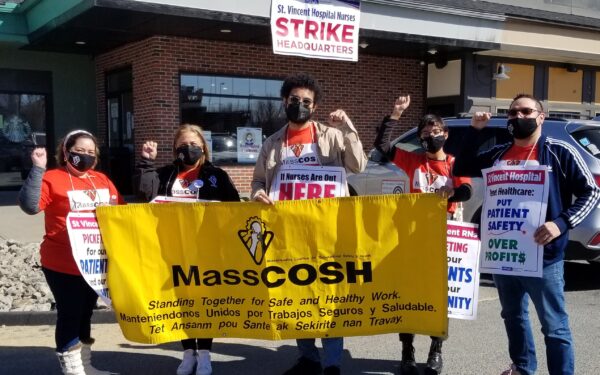“For people like Peter, pro bono representation is the best, and in many cases only, chance they have for their rights to be vindicated. In Peter’s case, there were overlapping issues and complexities that he couldn’t reasonably have been expected to navigate on his own. Having lawyers to help him made all the difference. There are a lot of other people out there like Peter, and with relatively small efforts, we can each help bring big changes to their lives.”
– Benjamin Conery, Senior Associate, Wilmer Cutler Pickering Hale and Dorr LLP“Dedicating my time to pro bono work is about doing my small part to make the pursuit of justice (something that should be accessible to everyone at any time) more equitable. It’s rare for an individual pro bono client to have only one economic struggle or legal problem – instead many interlocking hurdles can create a situation that is insurmountable without legal representation. In Peter’s case he was not only denied the benefits he was entitled to, but we also discovered that he was the victim of identity theft. It was a privilege to help untangle the unjust web of difficulties he faced and secure the benefits he deserves.”
– Paloma Naderi, Associate, Wilmer Cutler Pickering Hale and Dorr LLP

WilmerHale attorneys Benjamin Conery and Paloma Naderi first met Peter* after he attended one of the Clearinghouse’s Legal Clinics at Pine Street Inn.
Peter, who suffers from intellectual and physical disabilities, had been homeless for several years. He was seeking assistance appealing multiple denials for Social Security disability benefits.
Ben and Paloma represented Peter at a hearing in front of an administrative law judge (ALJ), where it became apparent that someone had likely stolen Peter’s identity and was using his Social Security information to report their earnings. This reported income made it appear that Peter was in fact working and therefore not disabled and entitled to benefits.
Over the course of a year, Ben and Paloma tried to prove that Peter was a victim of identity theft, but tracking down the relevant information proved to be difficult. Independent investigations conducted by the Social Security Administration and the IRS did not find sufficient evidence to remove the listed earnings, while attempts to reach the employer of the identity imposter were unsuccessful. During this time, the additional earnings put Peter in danger of also losing his state assistance.
Eighteen months after Peter’s first hearing, Ben and Paloma represented him at a second administrative hearing, where the ALJ asked them to gather more evidence supporting the claim that Peter’s identity had been stolen. They collected affidavits from his former social worker and the adult day center where he attended programs.
A couple weeks later, the ALJ returned a “partially favorable” decision, which concluded that Peter could still work sedentary jobs, but that in light of his age, education, and past work experience, there were very limited employment options available to him. And while the ALJ ruled to leave the earnings in question on Peter’s record, they said that the timing and amount of the earnings did not impact Peter’s ability to receive benefits.
Today, Peter receives monthly benefits payments that far surpass his initial state benefits. He says he is hoping to eventually move out of the rooming house where he lives and into an apartment of his own.
*Client’s name has been changed to protect privacy.


